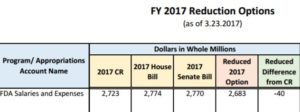Government’s food regressions: FDA and USDA
It’s pretty depressing to watch what’s happening to the gains in food and nutrition policy so hard won in the last few years.
Nothing but bad news:
Menu labeling: The FDA is submitting interim final rules, a tactic to delay implementation of menu labeling, which was supposed to start on May 5. Why? The National Association of Convenience Stores and the National Grocers Association filed a petition asking for the delay. Pizza sellers have been lobbying like mad to avoid having to post calories.
Food labels (calories, added sugars): As the Washington Post puts it, the food industry is counting on the current administration to back off on anything that might help us all make better food choices. At least 17 food industry groups have asked for a delay in the compliance date for new food labels—for three years. Why? They are a burden to industry. The soon-to-be FDA Commissioner, Scott Gottlieb, said this about food labels:
As a general matter, I support providing clear, accurate, and understandable information to American consumers to help inform healthy dietary choices,” Gottlieb wrote, according to documents obtained by The Washington Post. “ … However, I am mindful of the unique challenges that developing and communicating such information can pose, particularly on small, independent businesses.”
Definition of dietary fiber: The American Bakers Association wants the FDA to take back its new, stricter definition of dietary fiber, (it excludes synthetic fiber) due to go into effect in July 2018.
School meals: The USDA says it is about to announce new school meal “flexibility” (translation: rollback of nutrition standards).
The score: Big business 4, public health 0
Happy May Day.
For further reading:
- Vox’s Julia Belluz reviews these issues, but also comments on Michelle Obama’s enduring legacy.
- Politico summarizes USDA’s proposed actions.
Addition: It gets worse. Politico reports that the congressional spending bill:
Contains a rider blocking funds from being used to work on “any regulations applicable to food manufacturers for population-wide sodium reduction actions or to develop, issue, promote or advance final guidance applicable to food manufacturers for long term population-wide sodium reduction actions until the date on which a dietary reference intake report with respect to sodium is completed.”
Politico also points out that the previous draft of the appropriation bill merely encouraged FDA to delay its salt reduction proposal until the reference intake report is updated (this, by the way, will take years).
More documents:
- USDA’ proclamation on school meals
- CSPI’s press release
- Background: the letter from Senator Pat Roberts (R-KS) requesting these changes
- The FY2017 omnibus spending bill that includes the school lunch changes
- RWJ Foundation’s statement



